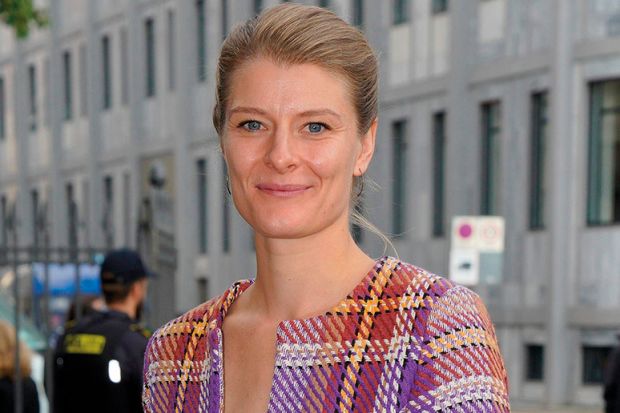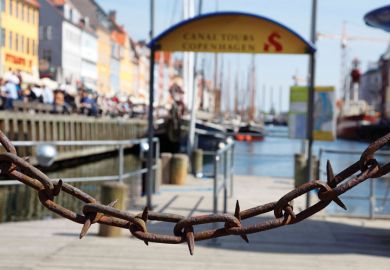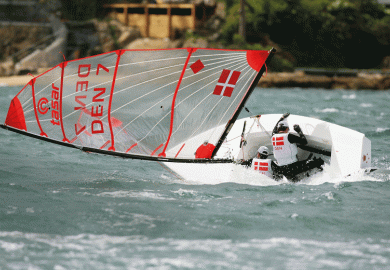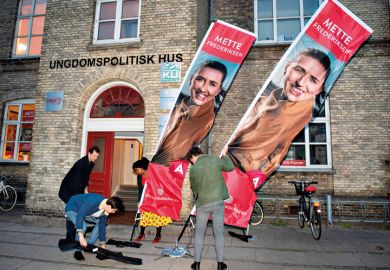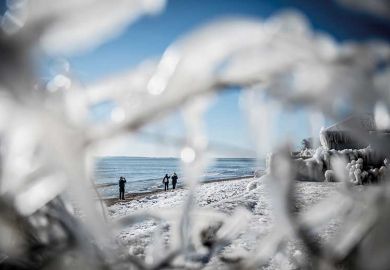Academic freedom is eroding in Denmark, according to scholars who described how humanities researchers have been withdrawing from public debate in response to attacks from politicians and the public.
Academics said that experts in gender studies, migration studies, race theory and post-colonialism were increasingly under attack, leading to a culture of fear in the sector.
The onslaught has been led by two politicians – Morten Messerschmidt, deputy chair of the far-right Danish People’s Party, and Henrik Dahl, a Liberal Alliance MP – who have described these disciplines as “pseudoscience” and “identity-political activism” and have said they are “displacing ordinary, worthwhile, academic fields of research”.
THE Campus resource: Embracing a compassionate approach in higher education
However, scholars suggested that this view was becoming more common among figures across the political spectrum and were particularly concerned that the minister for higher education and science, Ane Halsboe-Jørgensen, a Social Democrat, had not been more robust in her defence of the sector.
After being questioned by Mr Messerschmidt in parliament, Ms Halsboe-Jørgensen wrote that politicians should not be “the judge of scientific method in individual research fields”. But it worried her, she continued, that certain fields “apparently have one single-track theoretical and activist approach to research”, adding that she would discuss the issue with university leaders.
“What we saw was an attack from the political system on academic freedom, and I fear they have a taste for more in the future,” said Peter Lauritsen, a professor in Aarhus University’s School of Communication and Culture, who added that other politicians and organisations who usually defended academic freedom had been “quiet”.
A question to the minister on “excessive activism in certain research environments” was scheduled to be discussed in parliament at the end of May.
Professor Lauritsen said he would be surprised if the minister introduced any concrete measures aimed at limiting academic freedom, but he said the debate had already had consequences.
“I have colleagues who won’t speak up now and defend their research because they fear attacks from politicians and from members of the public. They have received threats, and universities have been in contact with the police,” he said.
Professor Lauritsen added that he feared that “young people will not enter fields like gender studies” because they will be deemed too risky.
Olav Bertelsen, an associate professor of computer science at Aarhus and a union representative, said there had been several cases where politicians had contacted researchers and suggested that “it would be wise for you if you do not talk publicly about this or that” aspect of their research.
“It has gone from bad to worse. Most people working in research related to race, Islam, migration or gender are not taking part in public debates…because people seem to want to make them look like terrorist supporters or, at the very least, non-scientific,” he said.
Heine Andersen, emeritus professor of sociology at the University of Copenhagen, who has investigated freedom of research in Denmark, agreed that the attacks had already “caused a fear culture among researchers” and led to self-censorship.
“Researchers are afraid to talk with the press, and some choose to shift their research areas. That will get much worse. The result is that the population in Denmark gets a biased, political picture of reality,” he said.
Professor Andersen said self-censorship was a particular issue in Denmark because universities have a top-down governance structure and are heavily reliant on short-term research funding from companies or foundations, while almost half of researchers are on short-term contracts. A 2017 paper comparing freedom of research across 28 European Union countries ranked Denmark in 24th place.
Register to continue
Why register?
- Registration is free and only takes a moment
- Once registered, you can read 3 articles a month
- Sign up for our newsletter
Subscribe
Or subscribe for unlimited access to:
- Unlimited access to news, views, insights & reviews
- Digital editions
- Digital access to THE’s university and college rankings analysis
Already registered or a current subscriber?
